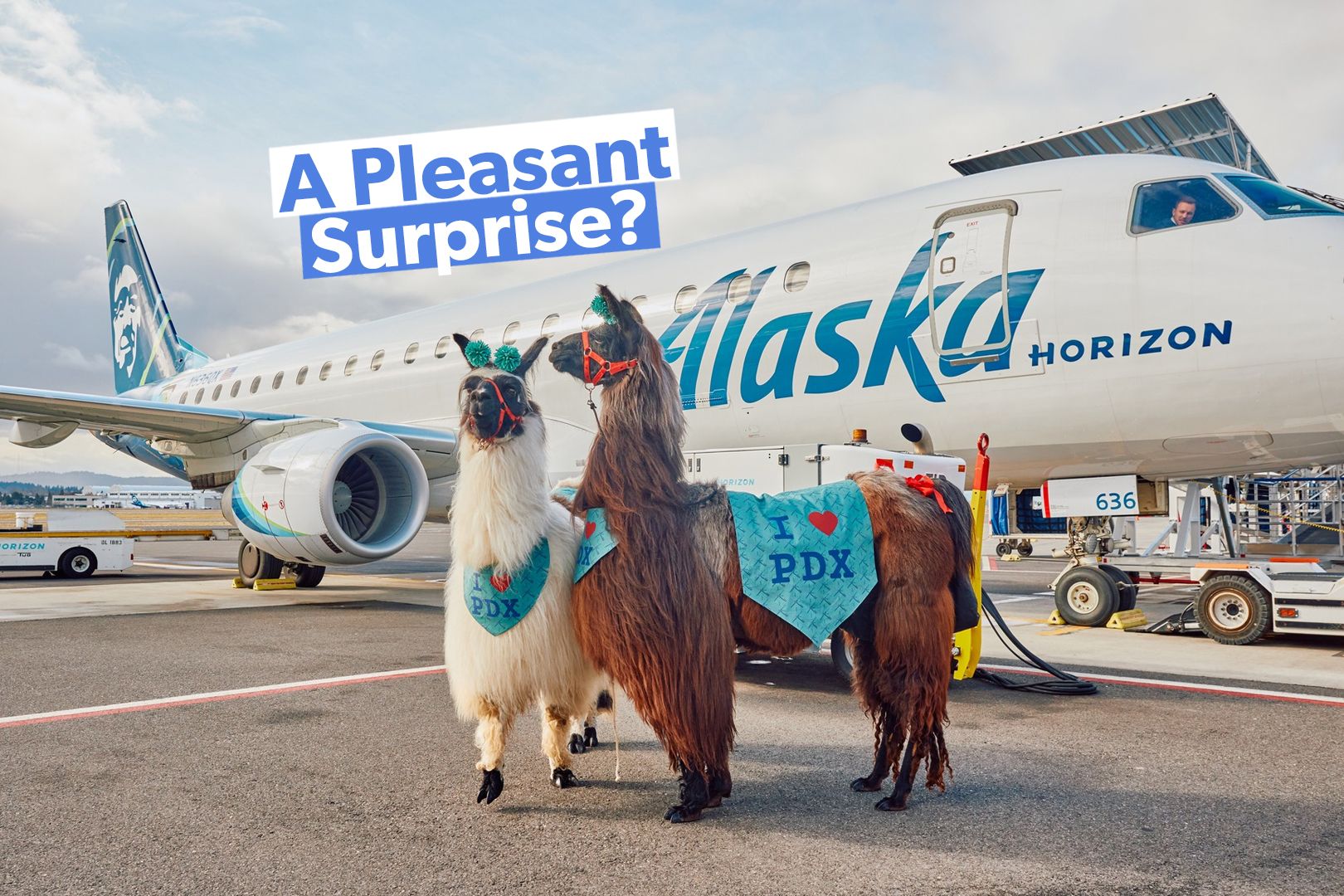
When an airport has service animals, they are typically dogs. But in Portland, things are weird, keeping with the slogan “Keep Portland Weird.” At Portland International Airport (PDX), there are llamas and alpacas that serve as therapy animals.
About the llamas According to Willamette Weekly , llamas have been part of PDX’s history for a few years. Their first appearance was at an employee event celebrating the opening of Concourse E. The animals returned in 2023 during the holiday season, “It was a particularly great way to spread cheer and help passengers de-stress during the busy holiday travel season.

The llamas and alpacas deliver instant joy and will be back in 2024 as part of the ongoing therapy animal program at a more regular cadence.” - Allison Ferre, Media Relations Port of Portland The llamas and alpacas are from Portland Mountain Peaks Therapy Llamas & Alpacas in Washington state. The farm was founded several years ago in 2002, and in 2007, Lory Gregory & Shannon Joy, a mother/daughter duo, began taking their animals to senior communities, special-needs groups, and schools for therapeutic and educational interaction.
Four years after that, they connected the farm to the Classy Camelids, LLC business. According to the farm’s website, these meet-and-greet style appearances financially support volunteer efforts at the non-profit (the farm). The farm is a faith-based non-profit, " which strives to share the love of God through animal-assisted therapy and camelid education among all ages.
" The team averages more than 300 therapeutic and educational visits annually in the Portland and Vancouver (WA) area. During farm visits, animals are involved in several things like taking a walk with a teenager with difficult issues, motivate patients recovering from strokes to reach farther, calm children with autism, and more. By offering friendship and warm touch, our llamas and alpacas help alleviate loneliness, lower blood pressure, and reduce stress- their presence can bring a sense of normalcy to institutional settings.
The Classy Camelids website highlights that not every llama and alpaca can be used for these purposes. Lori and Shannon search for animals that have special dispositions and prefer to be with humans. They also observe if the animal is confident being alone and social.
How the public has responded According to the National Public Radio (NPR) , passengers have had several reactions to the llamas. These reactions include staring, filming, and even tears. NPR spoke with Lori Sackett, who was flying to Texas, “You can tell by my response how joyful I feel to see these animals out here.
What a gift.” Sackett worked with llamas in a 4-H youth group when her daughter was younger and shared that her daughter would love the photos of the animals at the airport. She described the animals as magical but added that it is hard to explain without touching the animals.
“I think dogs elicit the same emotion. But isn’t this a million times more magnificent?” Shannon Joy, who owns the animals with her mom, said that she sees the change in body language and emotion when passengers see the animals. “Everyone has that resting face of ‘let me try to get through to my destination’, and then, all of a sudden, they come across a big fluffy llama that they’re encouraged to hug.
There’s this wave of relief. You can see the whole body change.” Another passenger, Varun Kataria, was hesitant to feed one of the animals.
But one of the “tricks” is not feeding out of one’s hand, but rather, out of one’s mouth. It requires putting a carrot in one’s mouth and offering it to the llama. Kataria said, “I don’t think I’ve put my mouth on an animal’s mouth before.
It’s kind of a nerve-wracking experience.” But after interacting with the llama and feeding it a carrot out of his mouth, Kataria said his stress was relieved. How to see the llamas According to a story from Frommer’s , the best way to see the animals is to follow the farm’s social media pages.
There is no posted schedule for the appearances, and the airport has not been consistent in notifying passengers of their presence. The farm's Instagram profile, @rojothellama, has posted before announcing the trip to the airport. The post added that the llamas would be landside at the airport, meaning anyone could see them, not just ticketed passengers.
According to the Classy Camelids website, the llamas can be “hired” for corporate events, parties, weddings, healthcare facilities, and more. Under the corporate section, the company advertises that the animals are dressed to impress. Outfits include unicorns, cowboys, top hats, bow ties, and even custom apparel.
The experience is not just a photo, it is an interactive experience with trained hands. The owners are willing to travel up to 45 minutes from the farm and occasionally a 45-70 travel time in fall or spring. Single-animal bookings are encouraged, but not required.
Prices are as follows: One animal 60 minutes - $650 90 minutes - $700 Two hours - $750 Second animal 50% off **but not always available for a second hour Holiday parties have a separate charge, $1,200 for two animals for 90 minutes. On Friday nights, the rate is just $1,000. Rates vary depending on the types of visits.
Patient visits are non-profit and start at $150 for 60–90 minutes for one animal. Detailed information can be found on the farm website. On the farm, tours have been put on hold until 2025 as they have been overwhelmed with requests, and the owners’ schedules were not consistent.
.











